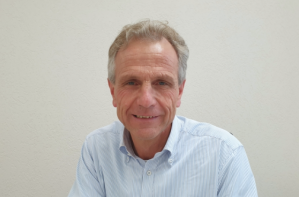
What carries people through illness and crisis? That question led Swiss physician René Hefti to found the Research Institute for Spirituality and Health (FISG) in Langenthal, which on Thursday, Sept. 11, celebrated its 20th anniversary.
FISG has spent two decades researching the relationship between faith, spirituality, and health — showing that spirituality can strengthen identity, gratitude, and coping skills. In an interview with Swiss evangelical media platform Livenet.ch, Hefti reflected on the journey that began with a conviction that something vital was missing in medical practice.
“During my specialist medical training, I repeatedly experienced that a dimension was missing — namely, faith, spirituality,” Hefti said. Patients faced suffering and death, and he saw the need to understand what gave them strength and hope.
After discovering a growing body of research in the United States, Hefti traveled to Duke University to work with Professor Harold Koenig, one of the leading scholars in the field. “They were studying questions such as: ‘Do religious people have better blood pressure and less depression?’ or ‘Do they cope better with cancer and heart surgery?’ This research fascinated me,” he said. The visit became the spark for founding FISG — then the first institute of its kind in Switzerland or Europe.
In its early years, FISG organized research workshops with Koenig and began supporting bachelor’s and master’s theses on the subject, filling a gap left by university programs. The response from students, Hefti said, was “tremendous.”

Over time, the institute conducted studies testing whether religiosity could act as a resilience factor. By “stressing” patients and healthy participants, researchers measured responses such as pulse, blood pressure, and cortisol levels — and found that those with higher levels of faith were more resistant to stress. Later research also confirmed that spirituality helped people cope better with heart disease and depression, with meaning and gratitude emerging as strong spiritual resources.
Hefti said one of the most striking findings came from a survey of general practitioners. “Two-thirds of doctors believe in transcendence — a higher power — exactly the same proportion as in the general population,” he said, noting this challenges the common perception that academics are less religious than average citizens.
Currently, FISG researchers are analyzing data from the Swiss Household Panel, a national cohort of 6,000 participants surveyed every three years, to see if there is a population-level correlation between religiosity and health outcomes such as doctor visits and reported diagnoses. “If we find a connection here, it would be strong evidence for the health-promoting effect of religiosity,” Hefti said.
Thursday’s anniversary celebration included greetings from Bernese Health Director Pierre Alain Schnegg, academic reflections from theologian Simon Peng-Keller, and a video address by Duke’s Harold Koenig, who has been a mentor to the institute.
Hefti said the priority now is to consolidate FISG’s core activities — research, training, and networking — and expand its academic partnerships. Planning for leadership succession is also on the horizon.
“We have learned over 20 years that spirituality is a powerful resource for strengthening identity, promoting gratitude and forgiveness, and integrating suffering into life’s bigger picture,” Hefti said. “The challenge is to continue this work and help society see faith not only as a private matter, but as something that can contribute to public health.”





